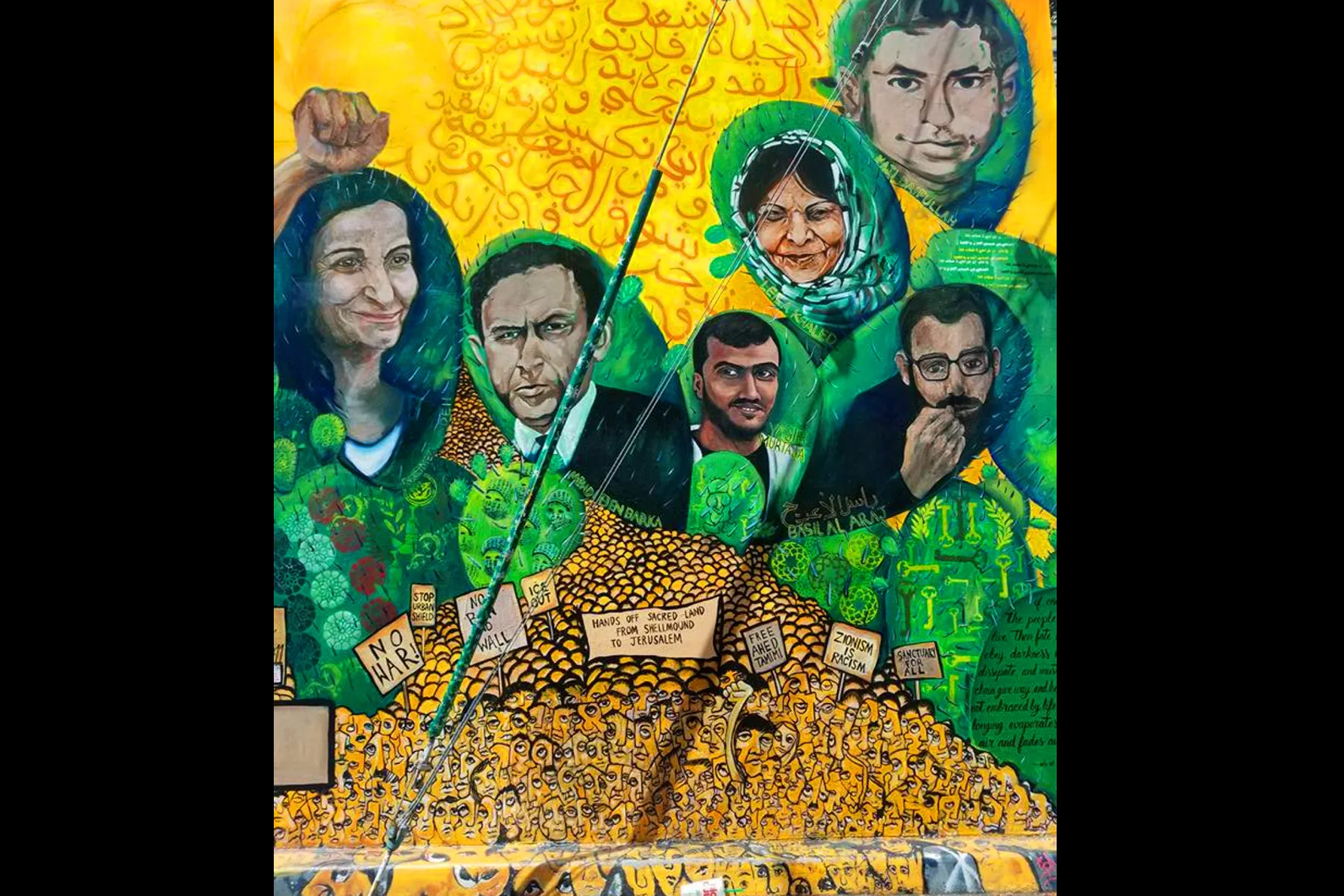A new letter from the American Civil Liberties Union of Northern California raises First Amendment concerns after the San Francisco Public Library decided to omit a line it called antisemitic from a Palestine-focused mural in an exhibit that was supposed to appear this summer.
The exhibition, which was canceled in March as a result of the controversy, was focused on racism and xenophobia against marginalized groups, including Palestinians. The mural in question featured a sign with the phrase “Zionism is racism.”
The library raised concerns about the phrase and discussed removing it with the curators, according to an SFPL statement sent to The Standard. The group declined to make changes to the exhibition, said Christopher Statton, co-director of Clarion Alley Mural Project, the Mission District-based group that organized the mural exhibition.
“It may create discussions that are difficult and messy, but it’s harmful not to have these discussions,” Statton said.
In her letter, ACLU Staff Attorney Hannah Kieschnick agrees, arguing that the library, as a public space that often promotes and displays speech that doesn’t represent its views, cannot discriminate that speech by its viewpoint or concerns it is controversial.
“Instead of cancelling what the library perceives to be a controversial exhibition, I urge you to use the exhibition as an opportunity, consistent with the library’s role as a center for information and learning, to welcome diverse perspectives and foster open dialogue about the viewpoint expressed in the Arab Liberation Mural,” Kieschnick wrote in the letter.
The SFPL declined to comment on the ACLU letter specifically, but its statement to The Standard reaffirms its decision to ask the artists to edit their work before its presentation in service to their mission to “provide a safe and welcoming space for our entire community.
“Presenting expressions, such as ‘Zionism is Racism,’ which are widely viewed as antisemitic are counter to that mission and would set a precedent that would justify the exhibition of other viewpoints harming minority communities and identities based on race, gender, national origin, sexuality, or religion,” the library’s statement reads. “The Library presents a panoply of viewpoints on a wide range of topics, but we draw the line at a public display of speech that negatively targets any specific race, ethnic or religious community.”
According to Statton, several alternative venues that he declined to name have reached out to the group offering to display the exhibition in its entirety.
“The library’s decision to censor our mural without connecting with the community—it was disrespectful,” said Sharif Zakout, an organizer at the Arab Resource and Organizing Center. “Our community was left out of it completely.”
